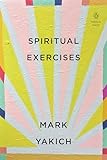Here are five notable
books of poetry publishing in July.
In Her Feminine Sign by Dunya Mikhail
In her note to this
collection, Mikhail explains that she drafted these poems “from right to left
and from left to right, in Arabic and in English. I didn’t translate them; I
only wrote them twice.” Each text, then, is “born on the tip of another tongue”;
an original creation that carries a shadow. Her title is developed in the book’s
first poem: in Arabic, “Feminine words are followed / by a circle with two dots
over it. / They call this symbol the tied
circle, / knotted with wishes / which come true only when forgotten / or
replaced by the wishes of others.” This feminine sign becomes a source of
wonder and longing, permeating Mikhail’s entire collection. Her settings range
from Baghdad to Detroit, but are connected by sound and her Chaldean Catholic
sense. Are the explosions fireworks, or bombs? Is there a difference to the
ear? When in Baghdad as a child, “we played dead: / we killed each other / with
plastic weapons”; now those games are no longer played, and the children, “motionless
/ on the floor,” no longer “laugh / or hold life / and rise.” Mikhail’s
solemnity arrives in clean lines and shaped stanzas: “Like communion bread /
your words dissolve in my mouth / and never die.” A beautiful book.
Come Closer and Listen by Charles Simic

In the book’s title poem, Simic begins with birth: “I was born—don’t know the hour— / Slapped on the ass / And handed over crying / To someone many years dead / In a country no longer on a map.” The narrator wonders about life: “Blessed or cursed—who is to say?” Simic, Pulitzer Prize winner and former poet laureate of the United States, continues to write terse, witty poems with funny moments that also carry a solemn touch. “Skywalking” is a poem aware of mortality: “Much grief awaits us, friends. / From this day on / We’ll be testing our luck / Like a man stretching a wire / Between two skyscrapers.” Out and up there, folly bound to the wind, “We are likely to forget the man / Waving his arms up there / Like a scarecrow in a squall.” Other poems sneak into the book with breathless, cheeky brevity, as with “Haystack”: “Can you find in there / The straw that broke / Your mother’s back?”
No Matter by Jana Prikryl

“I think right now readers
of all genres put a lot of faith in language and its capacity to
reveal—possibly because we live in a time of unhinged political mendacity, so
it’s very comforting to believe that literature can provide direct access to
someone else’s uncomplicated truth?”—Prikryl has followed that conjecture with
her own personal skepticism of language: “For me, the excitement of writing
something like a poem usually resides in prodding and questioning the words
that claim to represent what my brain claims to want to be saying.” No Matter is full of ambiguity and
discovery; poems that move around the linear and logical. Her surprisingly mellifluous
order comes, I think, from a spatial sense. From “Real”: “In which the studio /
grows L-shaped, with an alcove / for the bed, you modest dream, in which the
railroad / widens sideways.” From “Garden”: “I climbed to a railroad apartment
/ long in all directions, known as an open-plan office / the lights were out
anyway / to signify canapés, / at large but shouting / endless prayer.” From “Santo
Stefano Rotondo”: “Come, walk this path / between flapping tarps / holding back
on either side / construction sites // the way a bedsheet hides” labor; how, “Looking
back the path narrows / (memory a scarce resource) / and bends, takes on the
gentle / curve of the earth as if in the space / of that city it were given
your body / to feel for itself the four inches / up and four inches down / per
mile the planet swells.” A deft collection.
Feel Free by Nick Laird

Laird is by turns witty and sentimental, and I think that mixture compels me more toward poems of the latter mode, as in “Silk Cut”: “I was five and stood beside my dad / at a junction somewhere in Dublin / when I slipped my hand in his / and met the red end of a cigarette.” Years pass, cynicism and pain accrues, and then father and son get a pint. The old man’s “voice tears up a bit // about the emptiness in the house.” Later, “waiting / at the turn for the traffic, / when I find / I have to stop my hand from taking his.” Then there’s the moving lines of “Incantation”: “Depending where one stands, each circle / back is a possible fall, a fail, a spiral, / and I would like you to take a few seconds / to write me out one beautiful sentence / to carry now across the night and ocean.” Feel Free never feels maudlin, though, because Laird reminds us to not get too complacent, as in “Temple of Last Resort”: “I wanted the real God to turn and say // I was just kidding. // About everything.”
Spiritual Exercises by Mark Yakich

“For me, being irreverent
involves a much deeper understanding of reverence,” Yakich says. “It’s like
satire: how does one really fathom something? One makes fun of it in a serious
way.” I wouldn’t consider Spiritual
Exercises merely a jumpy jeremiad against the titular meditations from
Saint Ignatius of Loyola, founder of the Jesuits—I think Yakich is a better
poet than that. His new book continues a tradition of Catholic irreverence (we’ve
seen it in fiction with James Joyce, John Kennedy Toole, and the legion of the
literary lapsed). The best poems in Yakich’s skilled book play with the porous
border between the profane and the sacred. The raunch realism of “Biblical”: “Just
shy of the surface, fish rise / And die, gleaming more / Beautifully when
belly-up.” The curious truths of “Empathy”: “It’s a bit unnerving, for
instance, / To watch someone else extract // A broken wineglass from the
garbage / Disposal.” And yet, how “oddly satisfying to / Dig out those same
shards oneself, / One by one, tenderly, until a finger’s // Pricked.” Empathy, “as
a method of penitence,” rarely “soothes”—but “As a display of // Affection, it’s
nearly foolproof.” Ignatius, smirking, would be proud.
The post Must-Read Poetry: July 2019 appeared first on The Millions.
Source : Must-Read Poetry: July 2019









